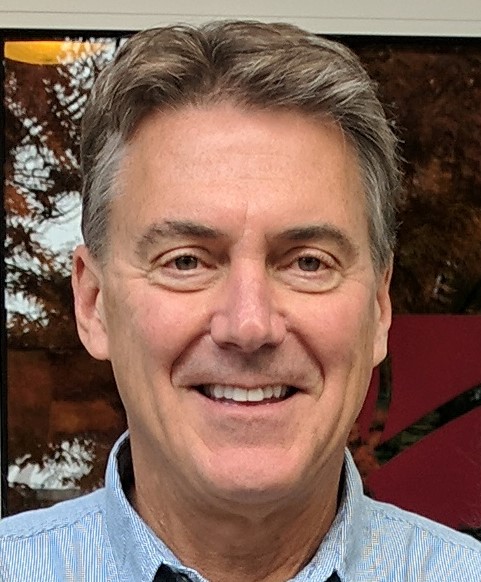Mark Johnson has a long legacy of supporting the genetic sciences through his professional work and his service over the past thirty years.
Having earned an undergraduate degree in business administration with a chemistry minor and a law degree from the University of Wisconsin-Madison, he began his career as a business attorney but soon turned his attention to the emerging biotech industry as an intellectual property attorney.
That interest led him to genetics. Fascinated by the logical nature of gene science, he put his science background to work developing FDA-approved genetic diagnostic testing kits. In 1995, Mark was one of the first employees of Mirus Bio Corporation, a biotech company founded by Jon Wolff and his colleagues.
In 2012, he and the founders of Mirus recognized the need for an independent organization devoted to educating the public on genetic science and providing genetic counseling free from the commercial influence of big genetic testing companies. That led to the creation of the Genetic Support Foundation, which has since grown to provide services to thousands of patients each year]to high-quality, expert and non-biased patient education resources.
Mark currently serves as treasurer of the board of directors, and as a founding board member, he has witnessed firsthand his and fellow founders’ vision for an independent organization devoted to meeting the needs of patients free of outside interest come to fruition.
In his free time, he is an avid biker and outdoorsman, something he shares in common with the other founders of GSF. He enjoys mountain biking in Minooka Park near his home in Wisconsin. He also enjoys spending time with his wife of nearly 40 years, Ellen, his two children, Erik and Kirsten, and his dog, Charlie.
What makes GSF unique? How would you describe its mission?
It’s uniqueness comes from the fact that it is a completely independent organization. Unfortunately, many of the genetic counselors that patients see are employed by the very company that makes the genetic test. That creates opportunities for conflicts of interests and the potential for recommendations of unnecessary testing or testing that’s not in the patient’s best interest.
Because GSF is a nonprofit, we are not beholden to any commercial interests when we counsel patients or create educational, patient resources. Our only mission is to improve the quality of genetic healthcare by providing up-to-date, objective genetic information to patients, providers, and healthcare organizations.
What are some of the biggest challenges facing GSF?
The domination of genetic counseling by commercial interest is only going to get worse as the market for these tests continues to grow and expand. Simply put, these very large companies make their profits off of testing, not counseling. As genetic testing gets more prevalent and we have more knowledge of how genes impact health and the role that testing can play in identifying potential treatments and therapies, the potential for exploiting patients to shore up a company’s bottom line will increase, leading to unnecessary testing and increased costs for us all.
This dynamic also causes additional stress for patients. All patients deserve access to an unbiased, neutral counselor motivated only by the patients’ best interest to provide answers and provide emotional support. At GSF, we always put the patient first.
Why do you support GSF? If someone asked you why he or she should donate to GSF, what would you say?
The reality is that most people aren’t tuned into the issues around genetic testing. They know it exists, but unless they have a personal connection, they’re unlikely to see the need to support an organization like GSF.
But the reality is that this is a growing problem that will impact more and more people. Ten years from now, people are going to really see and understand the need for independent genetic counselors.
By supporting GSF today, though, they can help turn the tide of commercial interest in our genetic information before it becomes a juggernaut that’s difficult to stop. Now is the time to fight for legislation that protects patients and ensures that your genetic healthcare is free from commercial interests. Our genetic information is important. We need to be sure it is protected.

